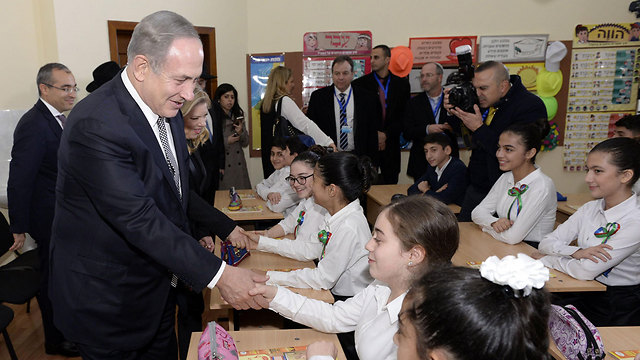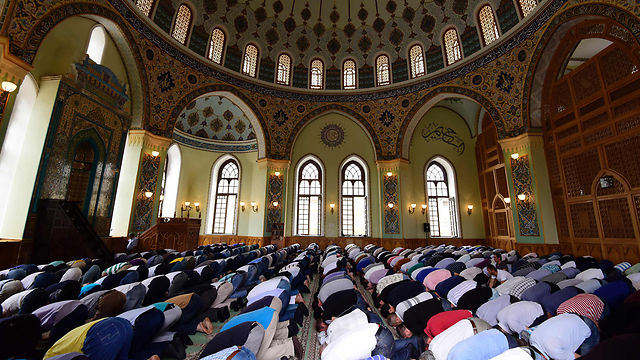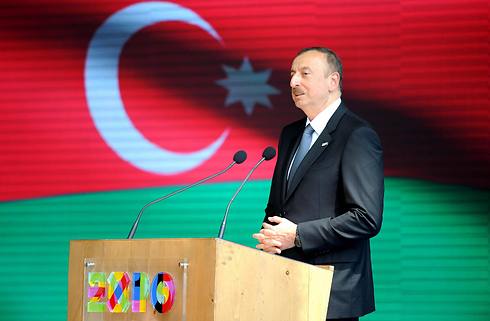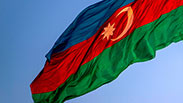
Similar to the “old periphery” idea of the late 1950s, when Prime Minister David Ben-Gurion searched for allies in the region against Egyptian President Gamal Abdel Nasser and the Nasserism and found Turkey, Iran and Ethiopia – the revolution in Iran, the Soviet Union’s dissolution, the occupation of Iraq, the overthrow of Saddam Hussein and the Arab Spring created new circumstances for cooperation.
The changes in the international and regional arena have, therefore, created new opportunities. Cooperation with Azerbaijan is allegedly surprising as this is a Shiite country which borders on Iran and is economically and religiously connected to the Islamic Republic (Iran has 16 to 25 million Azeri Shiite residents). As opposed to Iran, however, Azerbaijan is a secular state driven by pragmatic considerations rather than by a radical religious ideology, which has turned it into a desired target of the Israeli periphery policy.
Three main interests guide Israel’s policy in Azerbaijan: First of all, a foothold in an advanced post on Iran’s border, which could bear intelligence and diplomatic fruit in the battle against Iran on the issue of nuclear weapons and international terror (primarily ISIS and Hezbollah). In this context, the media have raised the possibility of Israel using bases in Azerbaijan for landing and fueling purposes as part of a possible attack on Iran. Such an option was raised in the Saudi context as well, but both countries denied these reports.
Second, an available and relatively cheap solution for Israel’s fuel needs. According to different sources, Israel purchases 40 percent of its oil produce from Azerbaijan. It is transferred through an oil pipe from Baku to Jihan in Turkey through Georgia, and from there in tankers to the Ashdod Port. It’s ironic that Azerbaijan is thereby replacing Iran, which was Israel’s main oil supplier until the Khomeini revolution in 1979.
Third, Israel has become an important supplier of arms, boats and remote-piloted vehicles to Azerbaijan’s army. Netanyahu’s visit, according to different reports, has to do with the sale of the Iron Dome defense systems. The scope of these deals amounts to billions of dollars.
An alliance of interests
The regional interest in cooperating with Israel is based on a number of elements: First of all, the need to purchase military resources in the war against Armenia over the landlocked Nagorno-Karabakh region, particularly in light of the refusal of different countries in the West to get involved in the conflict and the support Armenia receives from Russia and Iran. This cooperation does not end in the military field, but also includes collaborations in the fields of medicine, technology and agriculture.
Second, the fact that Iran is a political, economic and religious threat to Azerbaijan. The problem is that Iran’s geographical proximity and its military strength are forcing Azerbaijan to wisely manage its policy to prevent a deterioration in the relations.
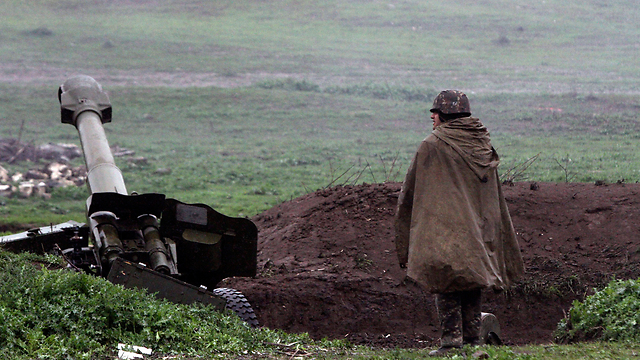
Third, there is an expectation that the Jewish lobby in the United States will help Azerbaijan fight the Armenians, who are working to be portrayed in the West as the victim not just in terms of the holocaust in Syria, but also in terms of the Nagorno-Karabakh region. Moreover, the good relationship between the two countries is based on the existence of an Azerbaijani Jewish community, the majority of which has immigrated to Israel (about 70,000 of 100,000) since the USSR’s collapse, but serves as an active bridge in building the relations between the countries.
Relations below the surface
Like Israel’s relations with the Gulf states and other countries, its relations with Azerbaijan suffer from the “mistress syndrome” as well: While the two countries maintain diplomatic relations, Azerbaijan doesn’t have an embassy in Israel. Moreover, in international forums it tends to vote against Israel, so as not to alienate the Islamic countries and mainly in order to win their support in the conflict with Armenia. There is no wonder, therefore, that Azerbaijan’s President Ilham Aliyev was quoted in one of the WikiLeaks telegrams from 2009 as saying that 99 percent of the relations between the two countries are held below the surface.
Nonetheless, the frequent visits by senior officials (Netanyahu, late President Shimon Peres and Defense Minister Avigdor Lieberman from the Israeli side, and the foreign minister from the Azeri side) indicate that Azerbaijan has a need to demonstrate an independent foreign policy, particularly vis-à-vis Iran and Turkey.
It’s interesting to see that the Nagorno-Karabakh conflict has spurred the tightening relations, although the Azerbaijanis are ideologically on the “Palestinians'” in this conflict; in other words, Armenia occupied about 20 percent of Azerbaijan’s territory in 1992 and banished a large part of the population (a million residents, according to Azerbaijan). Even if the comparison between the two conflict is not entirely accurate, it shows that in many cases diplomatic and economic interests – rather than ideology – play a key role in international relations.
Prof. Eli Podeh is a lecturer at the Department of Islamic and Middle Eastern Studies at the Hebrew University of Jerusalem and a board member at Mitvim – the Israeli Institute for Regional Foreign Policies.













